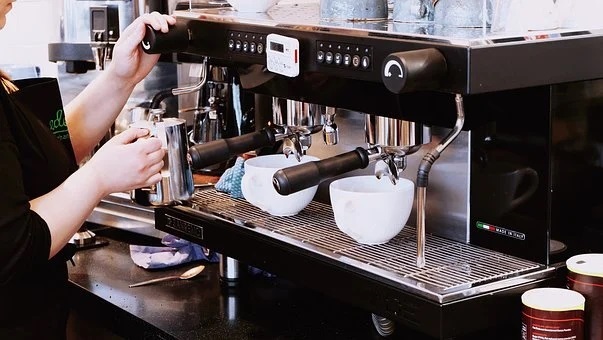Lack of purchasing power
Lack of purchasing power
Social Credit# argues that a fundamental problem with the economy is an inescapable lack of purchasing power. This lack means that the production of the economy can only be fully consumed if there is an ongoing injection of purchasing power - in the form of government spending.
A first simple argument

The goods and services produced during a time period - say one year - result in a whole range of people being paid for their work along the way. Take coffee as an example. The coffee grower needs to be paid; the coffee machines need to be repaired; the café staff need to be paid; the bank needs to be paid interest on any loans; the owner of the enterprise needs to earn a profit; and so on#.
All of the accumulated costs of producing the coffee are incorporated into the price so that when the coffee is purchased, the product 'washes its face': there is enough income to pay everyone involved in the production process.
However, there will be some people who have earned an income who decide not to buy 'their share' of the products - instead they decide to save, or invest. There will be others who do not have sufficient income to buy everything they want, but who are happy to take out a loan in order to do so. The borrowers are not necessarily penniless: entrepreneurs may take out loans in order to start a new business.
Let's start with a 'steady state' economy, meaning that the production at the end of the period is identical to that at the start. This means that there is neither growth nor recession.
For the market to clear (all products being purchased), the loans taken out need to be sufficient to cover the loss of purchasing power resulting from the savings. At the end of the period, the borrowers will be in debt; the savers will be in credit.
It is not hard to see that this situation cannot continue for very long. In a steady state economy the borrowers are racking up debt, and will inevitably cut back on their borrowing and hence their purchasing. The economy will start to decline.
Saving doesn't happen in a vacuum. If the demand for loans diminishes, the interest paid on savings will drop, and at some point the savers will prefer to consume rather than to save. Or, put another way - if the economy declines radically, everyone will have to consume whatever they can in order to survive.
This argument suggests that a static economy is only possible if savings and investment are zero.
For the sort of economy that most would want to live in, the economy cannot be steady state (or shrinking). To support the desire to save, the economy needs to grow, with a concomitant injection of purchasing power from outside
So what?
It is hopefully clear from the above that deferring consumption - aka saving - is only realistic in a growing economy.
Remembering that money is a scoring system, the increasing goods and services of a growing economy need to be counted: there needs be an increasing supply of points - aka money.
By analogy, if a concert hall expands the number of seats, more tickets will need to be made available. The 'lack of purchasing power' is hardly a flaw; it is a consequence of money as a scoring system in a growing economy.
Problems with this first simple argument: the velocity of money.
Neither the coffee argument nor the concert hall argument take account of the fact that money circulates - it is not a ticket - and the velocity of circulation is a significant factor in the functioning of the economy.
A better argument about purchasing power